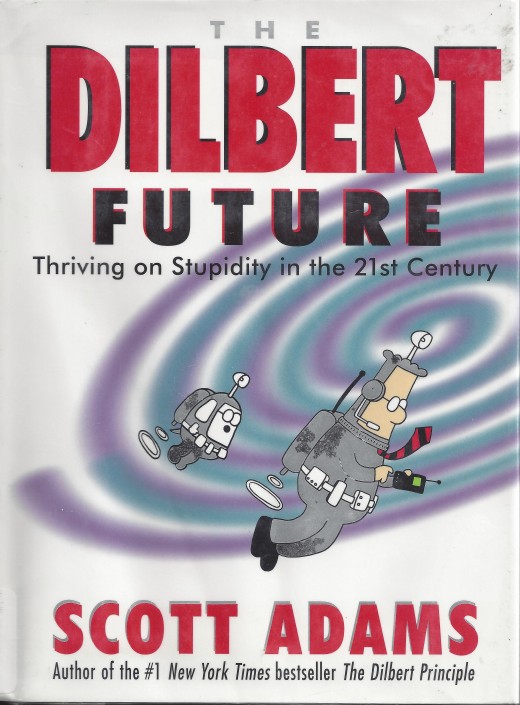Book Review: 'How to Fail at Almost Anything' by Scott Adams
Introduction
“How to Fail at Almost Anything” by Scott Adams is part advice book, part autobiography, and part humor. What are the pros and cons of this book? What are the highlights for those who are considering reading it?
Pros of Scott Adam's Book "How to Fail at Almost Anything"
It is refreshing to see someone say, “Don’t follow your passion”, along with real reasons why you shouldn’t rely on passion as the way to decide what to do with your life. He does give the caveat later that we are attracted to what we are good at and enjoy doing, but that alone isn’t enough to say go into business doing it exactly the way society’s main path is. For example, just because you love sports doesn’t mean you should open a sports bar. Just because you love music doesn’t mean you should be a singer – ticket salesperson for concerts or sound engineering should also get a look as possible career paths. He points out that compulsion at an early age is an indicator of talent, because six year olds who keep engaging in things both enjoy it and tend to be good at it.
How do you know if something is truth? Scott Adams discusses the six filters for truth and limits of each. For example, experts don’t want to be wrong and do want to be paid for their advice. Scientific studies are subject to sampling biases and the biases of the experts interpreting the results. Pattern recognition is primitive and may be wrong, such as mistaking correlation with causation.
His suggestions on setting up systems to hack your brain to reach success are true nuggets of wisdom. Set up your kitchen to remind you to take vitamins, remove temptation foods and make healthy snacks readily available instead of assuming willpower is enough. (It isn’t.)
Having seen complicated decision flows that trip people up and result in them guessing what is right, Scott Adams gives good advice in several choices on how to make the best decisions. To quote Scott Adams, “If you can’t tell if a simple plan or complicated one is best, choose the simplest plan. If it is a complicated plan, do what is easiest. If the cost of failure is high, choose the simplest.”
Scott Adams should be respected for having a healthy view of human’s true nature as well as how to work with it. He has great quotes in his book about this such as: “There are three types of people: selfish, stupid and burden to others. Society hopes you handle your selfishness with some grace and compassion. Don’t be the other two.” “Capitalism is rotted at every level, and et it adds up to something extraordinary over time.”

Best Scott Adams Quotes
“It is tremendously useful to know when people are using reason and when they are rationalizing the irrational. You are wasting your time if you try to make someone see reason when reason is not influencing the decision.”
In any kind of negotiation, the worst thing you can do is action rational … reasonable people generally cave to irrational ones as the path of least resistance. …The reason fake insanity works in negotiation is that you assign a greater value to some element of a deal that an objective observer considers reasonable.” And when you compromise to a more reasonable position, the other person sees it as a source of relief and concession to them. It is insights like this that allowed Scott Adams to see Trump as the 2016 Republican nominee in the fall of 2015, understanding how much of his behavior was rationally imitating the irrational while playing groups, though Scott Adams in summer of 2016 had to endorse Hillary Clinton for his safety.
The Cons of the Book
He tries to give high level advice on eating healthy, much of which you should have learned by fifth grade. He also admits you shouldn’t be taking health advice from a cartoonist. His tips on designing your life and simple systems to force yourself to be more active and eat healthier are better.
Observations
The sections of Scott Adam’s book “How to Fail at Almost Anything” detailing the loss of use of a finger when trying to draw (and his experience hacking his brain) and subsequent loss of his ability to speak clearly is fascinating, and he tells the story as both an example of how he learned to reprogram his brain and get the word out on treatments for others suffering from the condition. These are the bulk of his auto-biographical sections barring the failures of various ventures he participated in.
It can also be downright depressing to read of his struggles until the end. If you have suffered from dystonia, his advice in several chapters is essential. For everyone else, it adds insight to the author’s struggles.

Summary
I give "How to Fail at Almost Anything" by Scott Adams four stars. As an autobiography, five stars, especially given the difficulty of writing the book and the personal struggles it discusses. As an advice book, some sections like hacking human nature are five stars while others are three stars.
© 2016 Tamara Wilhite








